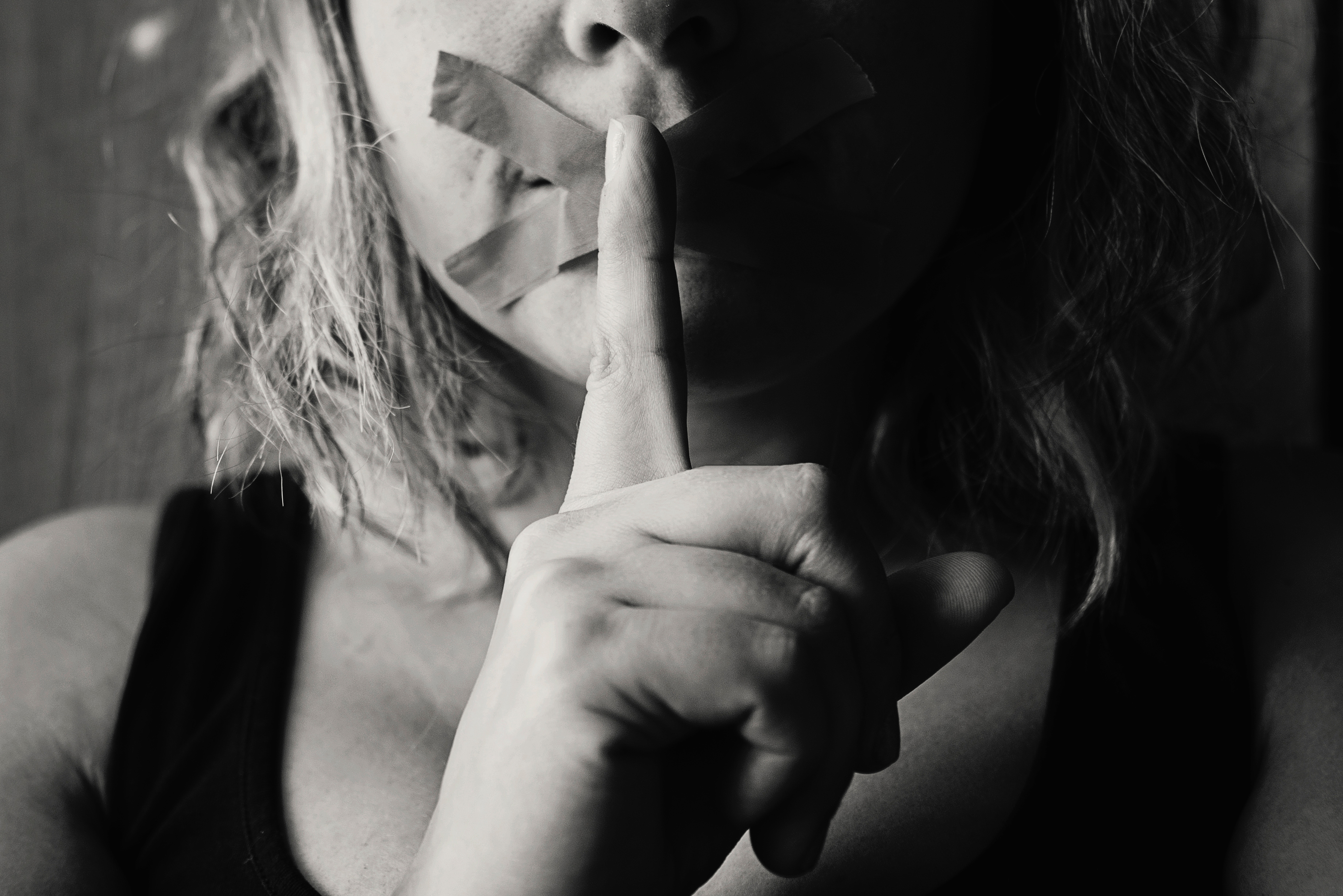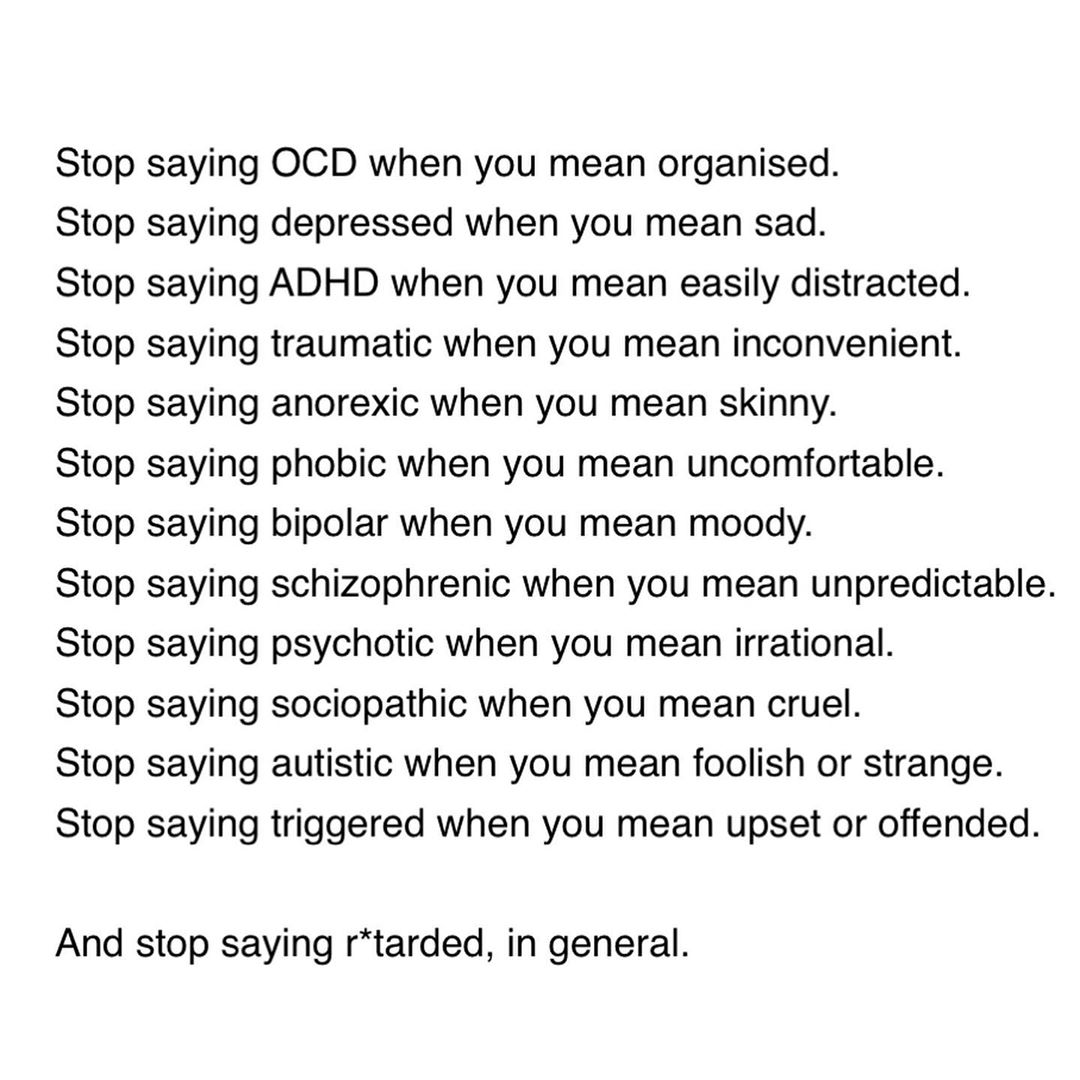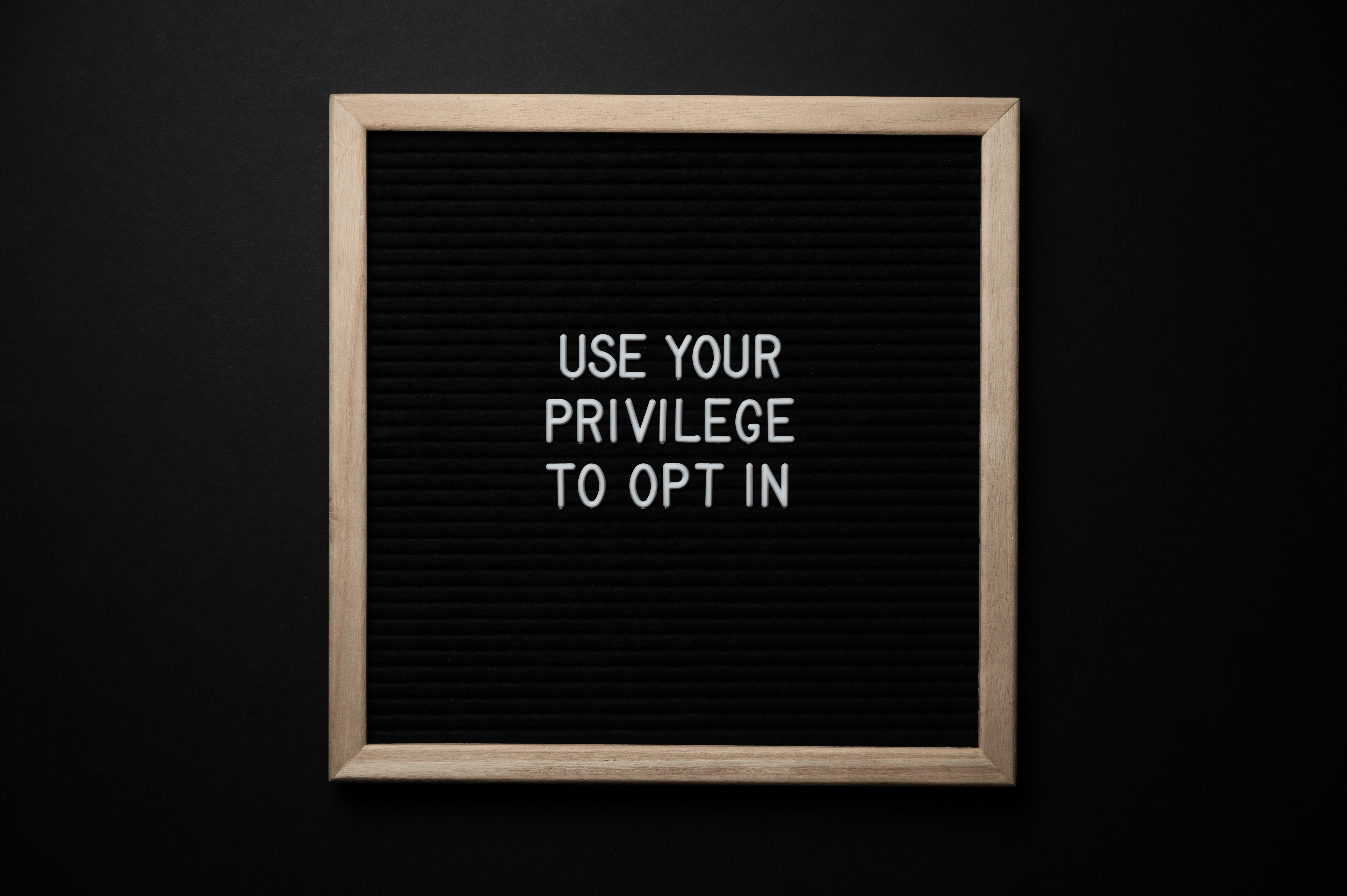Allyship
You’re going to mess up, you’re going to say the wrong thing. It’s inevitable. We all make mistakes, it’s just a part of being human. Making mistakes is what allows us to grow. You can’t learn to ride a bike by just watching YouTube videos and reading books. You’ll never be able to do it without trying and falling off. Being an effective ally is a lot like riding a bike. You’ll probably end up saying something “wrong” at some point even though we meant well. We judge ourselves by our intentions and others by their actions. This doesn’t mean we shouldn’t try. By not even trying, we’re failing before we start.
Allyship is about recognising and using our privilege to support people in less privileged positions. I could easily choose to stay silent if a particular issue “doesn’t affect me”.
Why don’t I stay silent?

It’s selfish not to speak up. I happened to be born as a white cis male, in a caring family. I could just have easily been born in a Brazilian favela without access to the same opportunities that I have. I would still be “me” in both situations, where my consciousness appeared is a matter of complete chance.
I’ve never had to fear for my physical safety when walking home late at night. I’ve never been rejected an opportunity that I was qualified for because of something as arbitrary as the amount of melanin in my skin. I didn’t have to work a full-time job whilst studying and instead had time to take part in extracurricular activities because I was financially supported. I’ve never been bullied or harassed for my gender identity or sexual orientation. I’ve struggled with my mental health in the past and I have ADHD but I’ve received support for that. There is no reason that I am any more deserving of these opportunities than any other human on this planet.
Darwin talks of “survival of the fittest”, it’s not always true. Our society rewards “survival of the luckiest”. Refusing to acknowledge the headstart and continued support that we have in life will only lead to growing levels of inequity. People often say “but I want all people to be judged equally”. Yes, that’s a goal that I’d like to reach too! That mindset is only fair if people are starting from the same place, with the same support and opportunities. On paper, I’ve got a “better CV” than someone who had a family to support and didn’t have the time or money to take part in self-development activities. On paper, I’d be the “better” candidate. This removes so many elements of who we are as human beings, the other candidate is likely smarter, more resilient, and harder working than I am. Is it truly fair that I’m the person that got the job simply because I was born in the right place at the right time?
I could just have easily been the other candidate. If I was in that situation and I’d worked twice as hard as Aidan but was rejected would I feel like it was a fair contest? Recognising the challenges that others have to go through that we could never fully understand and using our privilege to change those situations for the better is something we all need to do.
My favourite word is Sonder - “The profound feeling of realizing that everyone, including strangers passed in the street, has a life as complex as one's own, which they are constantly living despite one's personal lack of awareness of it.”
We are so often caught up in our own emotions, thoughts, and fears that we forget to realise that people around us experience the same emotions. Our brains are really good at abstracting away messy and complex thoughts. We don’t think of customer service employees as humans, we just shout expletives at them when our unnecessary online purchase is delayed. We don’t see the pig on our plate that has intelligence and emotions greater than dogs forced to live its life in a cage, we see “pork”. We don’t think of candidates for job interviews as people, we see them as competition who we must beat at all costs.
If we took a few seconds to truly deeply recognise that everyone around us experiences fear, joy, and pain in the same way that we do we’d do everything in our power to help them out in any way we can.
Recognising this and striving to create a better world for everyone, regardless of where they’re born or who they are is a goal that benefits everyone. With some social movements, there’s often an opposition that believes that giving rights to one group of people removes their rights, this is simply untrue. It’s not a zero-sum game. A common retort to “Black Lives Matter” is “but All Lives Matter”. Black lives matter is a simple statement. People aren’t saying “Only Black Lives Matter” or “Black Lives Matter More than your lives”. They’re simply saying that black lives have value.
Femi Oluwole explains it more succinctly than I ever could: “An analogy that I’m going to use is, if Jack has five sweets and Jill has three sweets, if you give both of them three sweets, Jack still has more. If you say Black Lives Matter, you’re pointing out, ‘Look please stop killing us’.
If you’re saying let’s treat things as if everything is equal when they’re not, you’re simply supporting a system that is already unequal. So that’s why saying All Lives Matter, when you’re faced with a situation where black people are being disproportionately killed, is actually contributing to the racism problem.”
How do we begin to actually effectively enact change?

Speaking out and challenging injustice when you see it is crucial. There are ways to do it that will win hearts and minds and educate others, there are ways to do it which cause people to become even more defensive of their current views. I see it as cancelling vs. calling out.
“Cancel culture” is a symptom of a pervasive group think fuelled by tech-based algorithms creating echo chambers and encouraging sensationalist extreme views across both ends of political and ideological spectrums. That was a long-winded sentence that was pretty sensationalist itself. It’s not incorrect though. Media and advertising are sold (is more likely to be clicked on) by things that grab our attention. If you saw two headlines:
- “Poverty has been steadily decreasing and everything is alright for the most part”
- “Everything is BAD, we’re all DOOMED and look at this SEXY definitely not airbrushed unrealistic expectation of a human being BUY DIET PILLS here”
Which are you more likely to click? Which is more likely to get more curious clicks in total? The exaggerated one. Add on top of this that social media algorithms are biased to show us things which we already agree with, we end up with further entrenched views of what we already believe in, and the chances of a well-reasoned debate decrease dramatically. This is what leads to “cancelling”. When tweets end up being vilified or previous mistakes from people’s past get discovered and hate flows their way as a result. This doesn’t give the person a chance to change. It leads to them feeling punished and alienated from the group “attacking them”.
Instead, we should always look to call out and educate. The aim should always be to offer new perspectives and information, and create a more welcoming environment, not to punish or score imaginary internet points. When people feel like they’re under threat they’re more likely to double down on their existing views than be open to growing. Give people the opportunity to change and be wrong safely. We change over time. I previously held views and used phrases that I completely disagree with and think are pretty nasty. You probably have views or phrases from 10 years ago that you disagree with now. We can change for the better, other people can too. If we approach every conversation with this mindset we can help to educate others but also become aware of our own blindspots and views that we hold that aren’t right.
Ask yourself what your intent is before responding. Crucial Conversations is one of my favourite books of all time and provides an excellent framework for having difficult conversations with grace and purpose.
As I said earlier, at some point we’re all going to say something bad. This doesn’t make us bad people. It doesn’t make others bad people when they say something bad, it makes them human. If we really want to improve the lives of others, we need to resist the urge to call others out to make ourselves feel better. Instead, we need to find common ground and share new perspectives with the intent of educating with compassion.
Recognise that intent is always more important than content.
There’s a fantastic charity in the UK called Scope. They campaign for positive attitudes and education around disability and give services to those who need it. When it was first founded back in 1951 it was called the "National Spastics Society". They changed to "Scope" after the increasingly negatively charged term "spastic" being used in a derogatory manner. This is a prime example of the meaning of language evolving over time and showing that it's okay to change! Their very purpose was to help a group of people yet their name ended up becoming a hateful phrase against the people who they were supporting. Words change over time, and so can we.
There are so many examples of phrases that we use because we aren’t aware of their true meaning. OCD stands for Obsessive-compulsive disorder, it’s a mental health condition that can present itself in many ways, it causes significant anxiety and a compulsion to perform rituals which has a significant impact on their lives. It’s normal to hear people explain their want for neatness by saying “Oh I’m just so OCD”. Liking a tidy space is not the same as having OCD. It minimises the real struggles that people with OCD face. Spending a few minutes of your time learning about how others think, and educating others (through sharing knowledge, not by shaming) helps to create a more welcoming environment for everyone. It allows people to feel comfortable and talk openly about their experiences without fear of them being trivialised.

Respecting and using people’s pronouns is another example of something that may not be something that you think about often, but it’s a part of who other people are. Imagine (and bare with me, this is going to involve some serious false equivalence) that your name is Aidan. Every day you go to work and everyone calls you John instead. I tell them “my name’s not John, it’s Aidan, they don’t sound remotely similar and I’d prefer if you called me Aidan”. They continue to call me John. “Yeah you don’t look like an Aidan, I think you look like a John so I’m going to keep calling you John.” This is nonsensical and bizarre but people regularly refuse to acknowledge people’s pronouns. It displays a complete lack of respect. If I was asking someone to call me “Lord Aidanathor, lover of lie-ins, creator of memes, head of all things fun and quirky” and request that they bow and perform a full ceremonial dance in my presence it’d be understandable to ask questions. All people are asking is that you use their name and pronouns. Also, if you’re cisgender. Share your pronouns! I add mine (he/him/his) to email signatures and bios. It doesn’t require much effort at all but normalises the topic and creates an environment where people can be fully open about who they are!
As with many things in life, the most important things require effort and vulnerability. It’s easier to watch Netflix than going to the gym. It’s easier to stay quiet if you’re struggling with your mental health than reaching out for help. It’s easier to stand by when you spot injustice than it is to speak out and support others. All of these are hard to do, but the difficult things we do are the ones that will make the world a better place. So let’s take those risks and speak up for others, let’s make mistakes and learn, let’s be allies.

I'd originally written the above as part of an incredible post inside of Red Hat about the power of allyship. I was asked to contribute a few words from a Neurodiversity perspective. I may have given more than just a few words. If that post is ever shared externally I'll be sure to link it here. Thanks so much for reading, this one was a bit longer than usual but it's all incredibly important. Stay safe everyone, Aidan xo